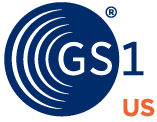Guidance Specifies Best Practices for Retailers and Brands To Avoid and Detect Carton Pack and Carton Shipment Inaccuracies
EWING, NJ – May 4, 2022 – GS1 US® has published a new resource to help brands and retailers leverage GS1 Electronic Product Code (EPC)-based Radio Frequency Identification (RFID) technology to support claims compliance, increase inventory accuracy and improve supply chain visibility.
The document, “GS1 US Claims Compliance Implementation Guideline for the Apparel Industry,” offers best practices for avoiding and detecting carton pack and carton shipment inaccuracies. Because RFID technology does not require line-of-sight for scanning, cases and cartons can be automatically processed for accuracy. The document also highlights use cases for specific processes, such as packing, inspecting or receiving, that can be automated using RFID technology.
“Retailers are increasingly turning to item-level use of RFID with GS1 Standards to enhance store operations and inventory accuracy, but the technology’s potential to support claims compliance and reconciliation remains untapped,” said Angela Fernandez, vice president of community engagement, GS1 US. “This guideline will help industry stakeholders and trading partners maximize their investment in RFID by arming them with the data to resolve claim discrepancies with trading partners.”
A recent analysis by Auburn University and GS1 US revealed that carton pack and carton shipment inaccuracy that result in claims and chargebacks cost more than the physical RFID tags, scanning equipment and other setup costs. According to a recent Annual Retail Trade Survey by the U.S. Department of Commerce, industry faces more than $36 billion in claims annually.
“RFID implementation costs have continued to come down in recent years, creating more opportunity for businesses to leverage the technology for multiple business processes,” added Fernandez. “As more companies fully understand how RFID can support claims compliance as well as product authenticity, grey market tracking, value-added services and reverse logistics, we expect adoption to continue to grow in the years ahead.”
For more information about the RFID Claims Compliance Guideline, visit site.gs1us.org/rfid-claims-compliance-guideline. To learn more about GS1 US, visit www.gs1us.org.
About GS1 US
GS1 US®, a member of GS1 global, is a not-for-profit information standards organization that facilitates industry collaboration to help improve supply chain visibility and efficiency through the use of GS1 Standards, the most widely used supply chain standards system in the world. Nearly 300,000 businesses in 25 industries rely on GS1 US for trading partner collaboration that optimizes their supply chains, drives cost performance and revenue growth, while also enabling regulatory compliance. They achieve these benefits through solutions based on GS1 global unique numbering and identification systems, barcodes, Electronic Product Code (EPC®)-based RFID, data synchronization and electronic information exchange. GS1 US also manages the United Nations Standard Products and Services Code® (UNSPSC®). For more information, please visit www.gs1us.org.
Media Contact:
Shannon Sullivan
GS1 US
(609) 620-4534
ssullivan@gs1us.org

